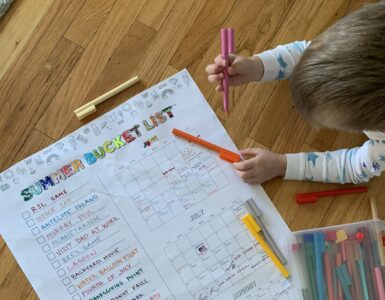D. Wright with the Murray School District shares five important questions you should ask your child’s teacher.
When you have an opportunity to sit down with a teacher, here are some ideas for topics that you may want to broach. Remember that when you are asking for constructive advice or information, you need to be able to be prepared to put aside emotional reactions to responses that just might catch you off guard or seem upsetting to you.
1. Ask your child’s questions first.
First of all, consider having a chat with your child before you go to see if there is anything that she would like addressed with her teacher(s), and then make that a priority to discuss. Be sure report back to your child about the discussion. This will show your child that you and her teacher(s) are a team… with her … all working together for her well-being.
2. Is my child accepted?
For elementary aged students, social development is a pivotal concern. It reflects more than just having a child that is “popular”, but tells a teacher where a child is in their self-confidence and maturity. If a child is able to interact comfortably with his peers, then the chances are greater that he will have more success both socially and academically as he progresses towards his secondary school years. Children that are not feeling accepted within the relatively safe environments of grade school can often feel like real outsiders as they enter junior high and high school. This can lead to feelings of isolation and a need for attaching to counter-culture groups which may cause concern.
If it is appears that by this time in the year your child does not have a solid circle of friends or is not talking about specific people each day, you might want to consider inviting friends over more and encourage more daily social interaction opportunities.
3. Does my child have friends?
Junior High counselors also advise that besides grades, parents should ask about any behavior issues, and friends. It is very important at this age that parents make every effort possible to know who their children’s’ friends are and determine if they are a good influence on them. In some cases, it may be your last chance as a parent to try to control social situations. Along with this, asking if teachers have noticed any changes in behavior or peer groups can be revealing, if the parent has concerns.
It is also a good idea to ask if a child is performing to ability; and if there are any class specific study tips; confirm classroom policies; and find out how often homework should be expected.
4. Is my child taking advantage of all available opportunities?
For high school students, many of the same concerns apply that are mentioned in during the junior high years, but in addition, this is the time to find out as soon as possible about what kind of opportunities there are at your students as they complete their K-12 education, including Aptitude Assessment and College exploration.
If your child is college bound, you may want to check with the counseling center for direction on ACT or SAT testing dates, college scholarship information and school college recruitment visiting times.
If college is not the priority, there are also programs offered in many high schools that are designed to lead to certification or licensure in a variety of Industry skills such as EMT, Surgical Technician, Certified Nurse Assistant, Dental Hygienist, IT and Computer training; all fields that a high school student could potentially be fully qualified in upon graduation. And, some of the corresponding internships and training programs could possibly result in immediate job placement at that time. You sometimes have to ask the questions about these options, though.
5. What can I do?
It never hurts to ask if there is anything that you, as a parent, can do to support the efforts of your child’s teacher. It may be something as simple as watching for notes to come home in a back pack, to monitoring your child’s assignment planner, or needs that the teacher may have for volunteers or chaperones.
To summarize, the overall suggestion similar to one that we nearly always come to for parents concerned with their child having the best educational experience possible. Be involved, tuned in and pro-active.
YOU are YOUR CHILD’S greatest advocate!















Add comment